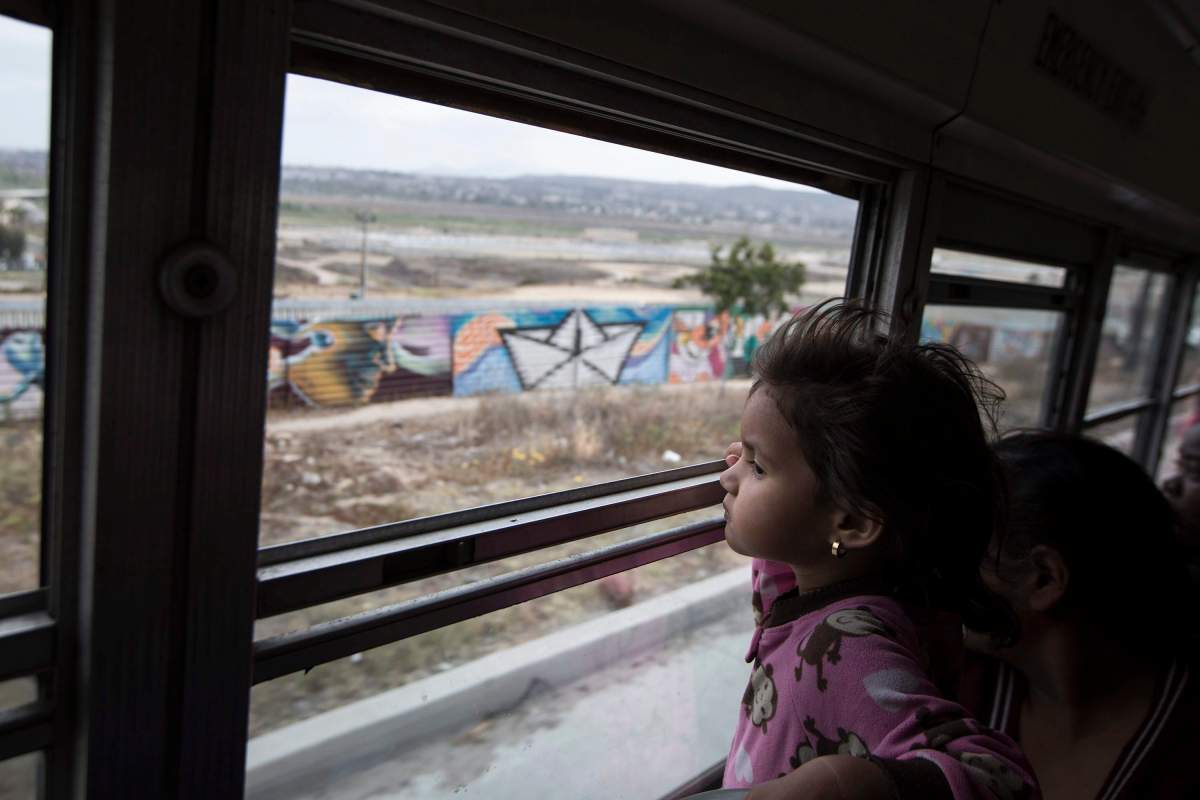Citing hardening anti-migrant rhetoric and policies in the United States, including the termination of programs for child migrants, the Canada Border Services Agency has told officers to brace for more arrivals at the border, according to a report obtained by Global News.

The CBSA Intelligence Brief said the U.S. had increased immigration enforcement actions, expedited deportations, limited who could enter the U.S. and apply for asylum, and eliminated the Deferred Action for Childhood Arrivals and the Central American Minors programs.
Together with the anticipated end of Temporary Protected Status (TPS) for hundreds of thousands of migrants in the U.S., the result could be increased movement north, said the CBSA report labelled “Irregular Migration” and circulated in January for shift briefings.

“Since early 2017, new immigration and enforcement policies and initiatives have been adopted in the U.S. signalling a harder stance in how migration to the country is managed,” said the report, disclosed to Global News under the Access to Information Act.
“As immigration enforcement efforts intensify and anti-immigrant mentality spreads, TPS holders fearing deportation back to their countries of citizenship could turn to Canada,” said the 12-page report, by the CBSA’s Intelligence and Operations Division.
U.S. immigration policy has become what Canadian border officials are calling an X-Factor for migration to Canada: Should the administration follow through with some of its promises, Canada could see a spike in asylum seekers.

Get breaking National news
Under pressure for a policy separating children from parents at the southern U.S. border, and images of minors detained in what have been described as cages, President Donald Trump took to Twitter on Monday, writing, “We don’t want what is happening with immigration in Europe to happen with us!”
The CBSA report predicted that high levels of asylum seekers would continue to cross into Canada from the U.S. But a key issue is what will happen to the more than 400,000 migrants living in the U.S. under Temporary Protected Status.
TPS allows citizens of countries designated as unsafe to reside temporarily in the U.S. The government has signaled that most beneficiaries will have to leave over the next few years.
The vast majority are from Haiti, Honduras and El Salvador. Refugee claims by citizens of those countries “increased significantly” in Canada last year, mostly in Quebec and Ontario, the report said.
WATCH: How Canada deals with families seeking asylum

The CBSA predicted that citizens of the three countries, along with Syrians, would account for the largest increases in refugee claims filed in Canada over the next two years.
Even if only one per cent of Haitians, Hondurans and El Salvadorans facing uncertain futures in the U.S. came north, Canada would see a “sizeable influx,” the report said.
The Immigration and Refugee Board approval rate for Haitians was 38 per cent between January and September 2017, it said, while for Salvadorans the figure was 62 per cent and for Hondurans it was 69 per cent. Syrians have a 92 per centapproval rate.
The report listed seven “indicators” that border officers should watch for, including increases in “anchor relatives” arriving to establish themselves in Canada before sending for their families.
“This could appear as an emerging trend amongst refugee claimants: persons who are married but not accompanied by their spouse or family, or claimants admitting that they intend to send for their family once set up in Canada,” the report said.
“Family reunification may already be playing a role in the current movement of Salvadoran claimants and it should not be discounted that this trend may spread to other TPS countries.”
Stewart.Bell@globalnews.ca









Comments
Want to discuss? Please read our Commenting Policy first.